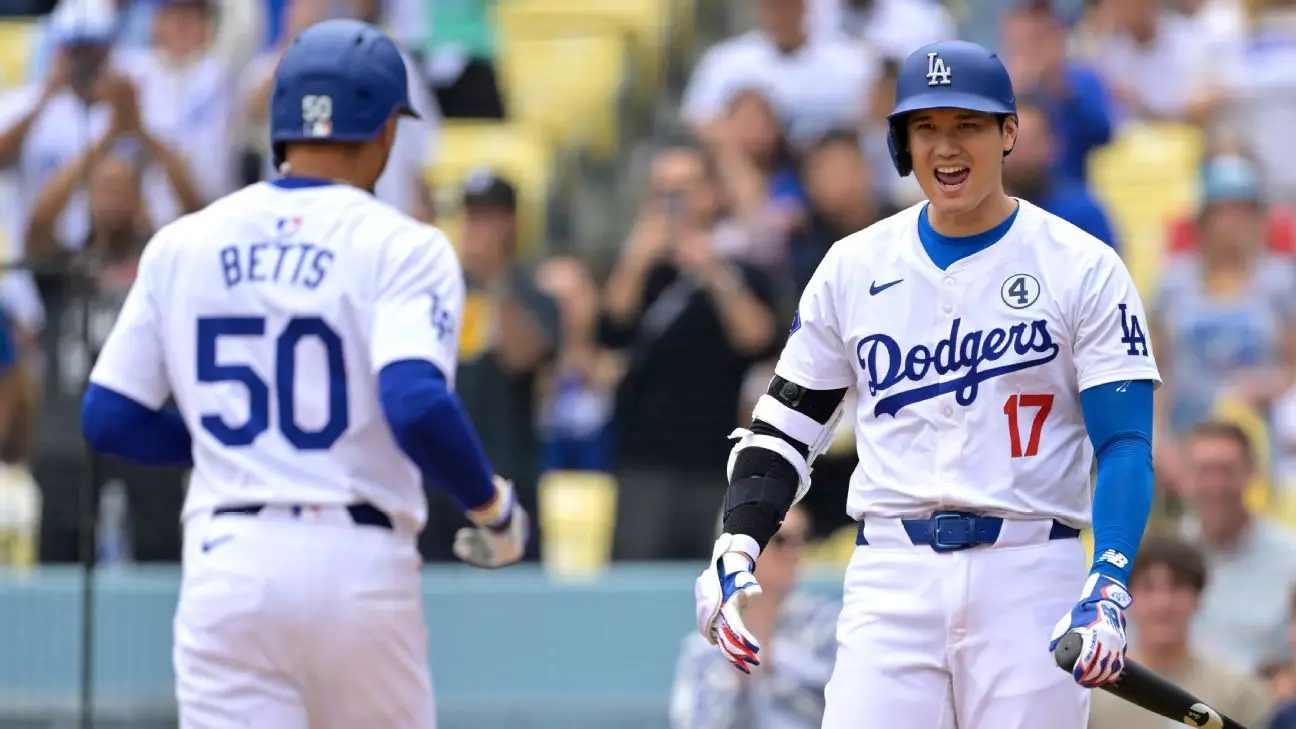In an exciting turn of events for MLB star Shohei Ohtani, he and his wife, Mamiko Tanaka, are preparing to welcome their first child. This momentous occasion not only highlights the personal joys of Ohtani’s life but also sets a backdrop for the challenges and responsibilities that come with fatherhood. As Ohtani dives deeper into this new chapter, fellow Los Angeles Dodgers teammate Mookie Betts offers a humorous piece of advice: “He should get his sleep now, because when the baby comes, he won’t get any.” This tongue-in-cheek remark reflects the adjustments athletes must navigate when balancing professional commitments with family life.
Betts, who has firsthand experience as a father of two, understands the relentless nature of parenthood that often blurs the lines between night and day. Sharing thoughts in a recent promotional event in Tokyo, he expressed how quickly this transition can alter one’s routine. His candid remarks serve as both a warning and a light-hearted acknowledgment of the transformative nature of becoming a parent, especially while juggling a demanding sports schedule.
As the Dodgers gear up for the upcoming MLB season, which kicks off at the iconic Tokyo Dome against the Chicago Cubs, the spotlight is also on rookie pitcher Roki Sasaki. Betts commented on Sasaki, who many have already deemed a “phenom,” suggesting immense anticipation around his entry into Major League Baseball. Ohtani, alongside fellow Japanese talent Yoshinobu Yamamoto, will play pivotal roles in fostering Sasaki’s growth within the major league environment.
Betts’ description of Sasaki as “really, really soft spoken” hints at the young pitcher’s potential struggles with the culture shock and language differences that accompany a move to the United States. Betts is keen to bridge that gap, promising to draw Sasaki out of his shell through camaraderie and deeper engagement with American culture. His commitment to creating a welcoming environment reflects a growing trend among athletes who prioritize mentoring their teammates, especially those from different cultural backgrounds.
Betts didn’t shy away from expressing his admiration for Ohtani, declaring him to be “like a god” in the eyes of Japanese media and fans alike. This sentiment not only emphasizes Ohtani’s remarkable skills on the field but also speaks to the larger cultural impact he has had as a trailblazer for Japanese players in MLB. As he continues to break records and redefine expectations, Ohtani stands at the intersection of sports excellence and cultural significance.
As the Dodgers prepare for their March games and Ohtani embarks on his new journey into fatherhood, the dual narratives of personal and professional growth intertwine. The challenges of parenthood may loom large, but they also offer a unique opportunity for Ohtani to embody resilience and adaptability—traits essential for any athlete facing the pressures of the game. As fans eagerly await the season’s start, they also look forward to witnessing Ohtani’s growth both as a player and as a new father, making this an exciting time for all involved.

